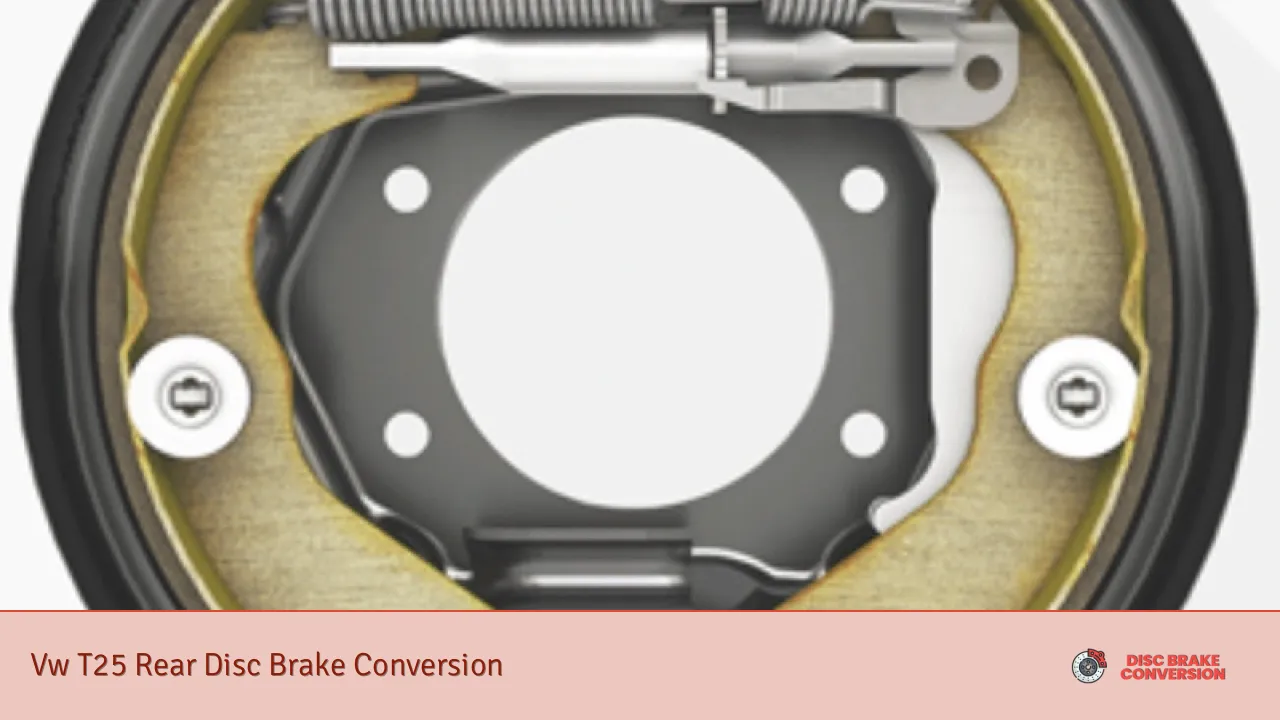Are you considering buying a new scooter? One crucial aspect to ponder is the type of braking system it employs. Two popular options are drum brakes and disc brakes. Understanding the differences between these two systems will help you make an informed decision. Let’s delve into the world of drum versus disc brake scooters and explore their unique characteristics.
Drum brakes, resembling a small circular drum, have been around for a long time and are commonly found on older scooter models. They function by applying pressure to the inner brake shoes, which press against the drum when the rider squeezes the brake lever. Drum brakes are known for their simplicity and reliability. They are less affected by external factors such as water or dirt, making them suitable for riding in various conditions. However, they may require more frequent maintenance and tend to generate more heat during prolonged use.
On the other hand, disc brakes present a more modern braking system adopted by many scooter manufacturers today. These brakes consist of a metal rotor attached to the wheel and a caliper that clamps down on the rotor to create friction, thus slowing down the scooter. Disc brakes offer several advantages over drum brakes. They provide better stopping power, allowing for quicker and more controlled deceleration. Additionally, disc brakes tend to dissipate heat more effectively, reducing the risk of brake fade during long rides or intense braking situations.
When it comes to maintenance, disc brakes are relatively easier to service compared to drum brakes. Changing brake pads or inspecting the rotor can be done quickly, saving both time and effort. However, disc brakes are more susceptible to damage from external elements like water and dirt. This vulnerability can affect their performance and necessitate more frequent cleaning and inspection.
Choosing between drum and disc brakes for your scooter depends on your specific needs and preferences. Drum brakes offer reliability and resistance to external factors, while disc brakes provide superior stopping power and easier maintenance. Consider the type of riding you’ll be doing, the weather conditions in your area, and your personal preferences to make the right decision. Remember, ensuring proper maintenance and regular inspections will ensure optimal braking performance regardless of the system you choose.
Revolutionizing Braking Systems: A Comparative Analysis of Drum vs. Disc Brake Scooters
When it comes to scooters, one crucial aspect that directly affects safety and performance is the braking system. Over the years, advancements in technology have revolutionized braking systems, offering riders more efficient and reliable options. In this article, we will delve into a comparative analysis of drum brakes and disc brakes, shedding light on their key differences and benefits.
Let’s begin with drum brakes. Similar to how a traditional bicycle brake works, drum brakes consist of brake shoes that press against the inside of a rotating drum to slow down or stop the vehicle. While drum brakes are generally cost-effective and easy to maintain, they do have some limitations. Due to their design, drum brakes tend to generate more heat during prolonged use, leading to reduced braking performance. Additionally, they may be prone to fade under heavy braking, which can compromise safety.
On the other hand, disc brakes offer several advantages over drum brakes. Instead of using brake shoes and drums, disc brakes utilize a rotor and caliper system. When the rider applies the brake lever, the caliper squeezes brake pads against the rotor, creating friction and slowing down the scooter. This design provides superior stopping power, especially in emergency situations, and reduces the risk of brake fade.
Disc brakes also offer better heat dissipation compared to drum brakes. The open design of the rotor allows heat to dissipate faster, reducing the chances of brake failure due to overheating. Furthermore, disc brakes are generally more responsive and offer precise control, allowing riders to modulate braking force effectively.
Considering these factors, disc brakes are often favored in high-performance scooters and motorcycles. However, it’s essential to note that drum brakes still have their place in certain applications, especially in smaller and lower-powered scooters where cost and simplicity take precedence over maximum braking performance.
While both drum and disc brakes serve the purpose of stopping a scooter, disc brakes outperform drum brakes in terms of efficiency, heat dissipation, and responsiveness. If you’re in the market for a new scooter or considering an upgrade, it’s worth opting for one equipped with disc brakes to ensure enhanced safety and a more satisfying riding experience.
Breaking It Down: Which Scooter Brake System Reigns Supreme?
Looking for the ultimate scooter brake system that outshines the rest? Let’s delve into the world of scooter brakes and find out which system reigns supreme. From drum brakes to disc brakes, we’ll break it down and help you make an informed decision.
When it comes to braking power and efficiency, disc brakes take the lead. Similar to the ones used in cars, disc brakes offer superior stopping performance and are highly responsive, ensuring a safer riding experience. With their advanced design, disc brakes dissipate heat more effectively, reducing the chances of brake fade during long rides or intense braking situations.
In contrast, drum brakes are the traditional choice for many scooters. Although they have been around for a while, drum brakes still hold their ground in terms of reliability and durability. They are enclosed within the wheel hub, providing protection against the elements and requiring less maintenance. However, drum brakes generally lack the same level of stopping power as their disc brake counterparts.
Now, let’s consider another crucial factor – cost. Drum brakes tend to be more cost-effective compared to disc brakes. If you’re on a budget or use your scooter primarily for casual rides, drum brakes might be the practical choice. On the other hand, if you prioritize safety and are willing to invest a bit more, disc brakes would be the way to go.

In the end, the choice between scooter brake systems depends on your specific needs and preferences. If you value performance, responsiveness, and enhanced safety, disc brakes are the clear winner. However, if you’re looking for a reliable, low-maintenance option at a more affordable price point, drum brakes can still deliver satisfactory results.
Remember, safety should always be a top priority when riding a scooter. Regardless of the brake system you choose, ensure regular maintenance and inspections to keep your brakes in optimal condition. Now that you understand the differences between drum brakes and disc brakes, you can confidently decide which brake system reigns supreme for your scooter.
Unveiling the Secrets: The Pros and Cons of Drum and Disc Brakes in Scooters
Are you curious about the inner workings of scooter brakes? You’re in for a treat! In this article, we’ll explore the fascinating world of drum and disc brakes, revealing their hidden secrets and discussing the pros and cons of each. So fasten your seatbelts (or should I say brake pads?) and let’s dive right in!
Let’s start with drum brakes. Picture a mini drum nestled inside the wheel of your scooter. When you squeeze the brake lever, two curved brake shoes press against the inside of the drum, slowing down the rotation and bringing you to a stop. Drum brakes are like the reliable workhorses of the braking world. They have been around for ages and are known for their durability and cost-effectiveness. Their enclosed design also offers protection against dirt and water, making them suitable for various weather conditions.
But like everything else, drum brakes have their downsides too. Due to their design, they tend to generate more heat during braking, leading to potential brake fade, especially when subjected to prolonged or hard use. Additionally, they might require more maintenance, as adjustments and occasional replacements of brake shoes become necessary over time. Despite these drawbacks, drum brakes continue to be widely used in many scooters, thanks to their affordability and reliability.
Now, let’s shift gears and focus on disc brakes. Imagine a shiny metal disc clamped between two brake pads. When you pull the brake lever, hydraulic pressure activates the caliper, squeezing the brake pads onto the disc, creating friction that slows down your scooter. Disc brakes offer excellent stopping power, providing quick and responsive braking performance even in demanding situations. They are like the sports cars of the braking world, delivering precision and control.
However, disc brakes come with their own set of considerations. One such aspect is cost. Compared to drum brakes, disc brakes can be more expensive to manufacture and maintain. They are also more exposed to the elements, making them prone to corrosion and damage from dirt and debris. Additionally, they may require more frequent pad replacements, and if not properly maintained, the discs themselves can wear out over time. Nevertheless, for riders seeking top-notch braking performance, disc brakes are often the preferred choice.
Both drum and disc brakes have their unique advantages and limitations. Drum brakes offer durability and affordability, while disc brakes provide superior stopping power and precision. When choosing between the two, it ultimately boils down to personal preferences, budget, and the intended usage of your scooter. Whether you prefer the trusty reliability of drum brakes or the high-performance capabilities of disc brakes, rest assured that both options will help keep you safe on the road.
The Great Debate: Exploring the Battle Between Drum and Disc Brake Equipped Scooters
Are you ready for an exciting ride into the world of scooters? Today, we dive deep into “The Great Debate: Exploring the Battle Between Drum and Disc Brake Equipped Scooters.” When it comes to braking systems on scooters, two titans clash: drum brakes and disc brakes. Let’s break down their differences and find out which one takes the crown!
Picture this: You’re cruising down the street on your stylish scooter, wind in your hair, enjoying the thrill of the ride. Suddenly, a pedestrian appears out of nowhere. Panic sets in, and you need to hit the brakes, pronto! This is where your braking system becomes your best friend.
First up, let’s talk drums. Drum brakes have been around for ages, like the loyal sidekick in a classic movie. They consist of a drum housing inside which brake shoes press against the inner surface to slow down the scooter. Drum brakes are known for their simplicity, affordability, and durability. They work well in most situations and offer decent stopping power.


On the other hand, disc brakes are the new kid on the block. They boast a sleek design and pack some serious stopping power. Imagine them as the superhero swooping in at the last second to save the day. A disc brake system uses a rotor, caliper, and brake pads to bring your scooter to a halt. They offer better heat dissipation, improved performance in wet conditions, and greater control overall.
But wait, there’s more to consider! Drum brakes may be reliable, but they can suffer from fade when subjected to prolonged heavy use. Disc brakes, on the other hand, are less prone to fading due to their superior heat dissipation capabilities. Additionally, disc brakes are generally easier to maintain and provide a more responsive braking experience.
So, which one should you choose? It ultimately depends on your riding preferences and needs. If you’re a casual rider who values affordability and simplicity, drum brakes might be the way to go. But if you crave the thrill of performance, enhanced safety, and don’t mind the slightly higher price tag, disc brakes will be your best bet.
The battle between drum and disc brake equipped scooters is fierce. Both systems have their strengths and weaknesses. Whether you opt for the loyal drum brake or the powerful disc brake, rest assured that manufacturers are continuously improving these technologies to provide better and safer rides every day. Now it’s time to hop on your scooter, hit the road, and embrace the exhilaration of the great debate!

